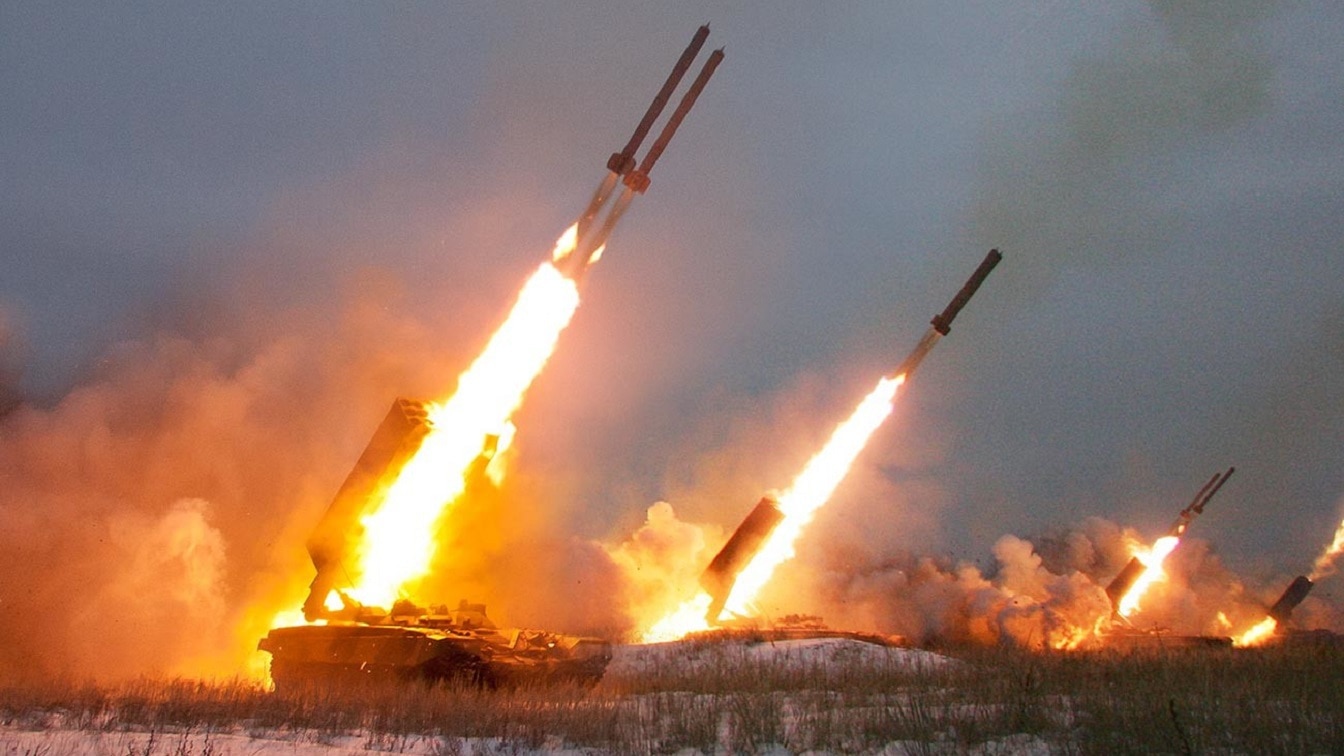For many Ukrainians, the question “what will the West do if Russia starts a war?” rings hollow. Since 2014 (and even before) Russia has been trying to force Kyiv to acquiesce to its regional dominance. Low-level warfare on Ukraine’s eastern border has cost hundreds of lives and disrupted the politics and economy of the rest of the country. Some analysts call this “gray zone” or “hybrid” warfare, although both of those terms suggest more novelty than Russian actions really reveal. But now of course Russia is threatening to enforce its will through more traditional military means.
The US has virtually ruled out a response using military force in the air, at sea, or on the land. US fighters will not contest Ukrainian airspace, and US warships are unlikely to attack their Russian counterparts or deliver ordnance from sea to land. The prospect of US soldiers fighting in Ukraine seems particularly remote. But of course, the United States has lots of tools in the toolbox. In a previous column, I discussed how the United States is considering using its weapons in what we might call the “financial domain.” Here, we can think about the steps that the United States might take in space and in the cyber domain.
Russia vs. Ukraine: The Intel Game
In space, the omnipresence of satellites has already changed the calculus of war. Russia’s mobilization efforts are glaringly obvious to Ukraine and to the rest of the world. An attack like Operation Barbarossa, in which the German acquired complete strategic and operational surprise, is no longer possible. Russia can disguise its moves in order to give its armed forces a tactical advantage, but the world is watching. The United States can take further steps, however. In the event of a conflict, the United States could supply the Ukrainian armed forces with substantial intelligence with respect to the movement, strength, and logistical support networks of Russian forces in the field. This matters a great deal on the ground; Ukrainian artillery bombardments directed by US-supplied satellite intelligence could kill hundreds or even thousands of Russian troops.
The US could also lend its massive satellite communications capabilities to Ukrainian forces in the field, and although there would certainly be interoperability concerns these networks could provide communications more secure and more immediate than Ukraine’s armed forces currently possess. Even if the Biden administration hesitated to turn over the keys to the kingdom, Ukraine could use the assets of private space companies. There is little that Russia can do to prevent this, short of attacks against satellites operated by the United States and other countries. This would represent a massive escalation and might well incur retaliation against Russia’s own relatively less-developed satellite networks.
Russia vs. Ukraine: The Cyber Game
With respect to the cyber domain, Russia and Ukraine have been engaged in a low-key cyber conflict since before 2014. Russia used cyber-attacks to disrupt Ukraine during the 2014 war, just as it had against Georgia in 2008. Russia’s capabilities are surely formidable, with attacks likely to come from both state-owned and state-sponsored actors. Indeed, some reports already indicate that Russia has begun to harass both civilian and governmental Ukrainian targets. The United States tends to keep its cyber capabilities close to the vest, and so it’s unclear what Washington can do to disrupt or divert the flow of information in deployed Russian military forces. But freezing or even damaging Russian communications could have significant tactical and operational effects. The US could also launch a wide-ranging set of cyber-attacks against Russian government institutions and Russia’s own cyber-agencies; such efforts have seen some success in the recent past. It remains unclear, however, how willing either Moscow or Washington will be to let the cyber dogs off their leashes.
US cyber and space assets probably can’t win the war for Ukraine, but they can definitely hurt Russia. Information about Russian troop movements could lead to the deaths of hundreds or thousands of Russian troops. We don’t know how Russia will view such efforts, but the sophistication and extent of US capabilities in both the space and the cyber domains are well-known to the Russians. Much will depend on what the Biden administration wants the post-war environment to look like. If Washington decides that relations with the Putin government are unsalvageable, it has little incentive to go easy.
Now a 1945 Contributing Editor, Dr. Robert Farley is a Senior Lecturer at the Patterson School at the University of Kentucky. Dr. Farley is the author of Grounded: The Case for Abolishing the United States Air Force (University Press of Kentucky, 2014), the Battleship Book (Wildside, 2016), and Patents for Power: Intellectual Property Law and the Diffusion of Military Technology (University of Chicago, 2020).

